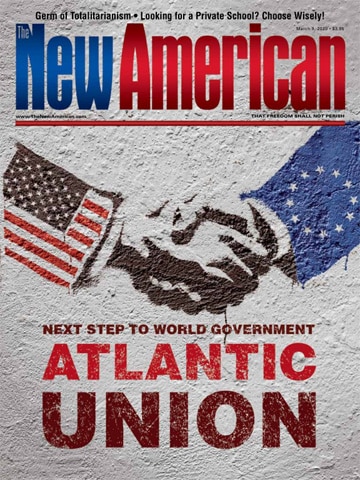Hong Kongers’ Heroic Fight
The Umbrella Revolution continues in Hong Kong, as the fiercely independent inhabitants of one of the world’s most modern and most densely populated cities struggle to hold on to their freedom and autonomy. Since June of 2019, Hong Kong has been rocked by mass demonstrations that have paralyzed the city and brought fears that its 7.4 million residents could soon face the type of deadly response that its Beijing overlords infamously unleashed on the Tiananmen Square protesters in 1989. According to common analysis, the fact that China’s Xi Jinping and his fellow hardline communists have not responded (thus far) with massive slaughter is due to their concern for “optics”; they would look bad on the world stage.
However, Beijing’s restraint with regard to Hong Kong most likely has far more to do with its considerations about the possible reaction from the U.S. White House than with global optics. President Donald Trump in 2019-2020 is a far cry from President George H. W. Bush in 1989. When Deng Xiaoping ordered troops and tanks to fire on the peaceful protesters, he had good reason to believe that President Bush would issue a harshly worded but toothless response. He was not disappointed. While the world watched in horror a massacre that resulted in thousands dead (likely more than 10,000) and thousands more wounded and seriously injured, President Bush responded with a “condemnation” that amounted to a tsk-tsk, and then back to business as usual. Bush, an old China hand (he was President Ford’s “ambassador” to China, then known as “chief of the Liaison Office to the People’s Republic of China”) and a rising star in the Council on Foreign Relations, dispatched CFR minions Brent Scowcroft (national security advisor) and Lawrence Eagleburger (deputy secretary of state) on a secret mission to Beijing to assure Deng and the Communist Party leadership that his denunciations were merely for American public consumption. Declassified documents show that Bush’s team assured the Tiananmen Square butchers that the United States wanted to continue developing “a healthy relationship” with the communist regime and the Bush administration — and the globalist elites it represented — viewed the Tiananmen massacre as “an internal affair” that would not upset ongoing trade or the transfer of the technology necessary to transform China into a modern power.
The Communist Party elites and their billionaire corporate princelings may have hoped that a Tiananmen-style crackdown on Hong Kong could pass with similar lack of repercussions from U.S. officialdom. After all, except for occasional perfunctory human-rights criticisms, Beijing has been able to get away with widespread religious persecution, torture, murder, imprisonment, organ harvesting, and much more, for decades. And even with its increasing belligerence and threats, its corporate and political leaders have been welcomed into the bosom of Wall Street, while the top American and European executives of Big Banking, Big Tech, Big Pharma, and Big Media continue their infatuation with the mass-murdering regime.
JBS Member?
Sign in with your ShopJBS.org account.
 Subscribe Now
Subscribe Now
- 12 Issues Per Year
- Digital Edition Access
- Digital Insider Report
- Exclusive Subscriber Content
- Audio provided for all articles
- Unlimited access to past issues
- Cancel anytime.
- Renews automatically
 Subscribe Now
Subscribe Now
- 12 Issues Per Year
- Print edition delivery (USA)
*Available Outside USA - Digital Edition Access
- Digital Insider Report
- Exclusive Subscriber Content
- Audio provided for all articles
- Unlimited access to past issues
- Cancel anytime.
- Renews automatically


